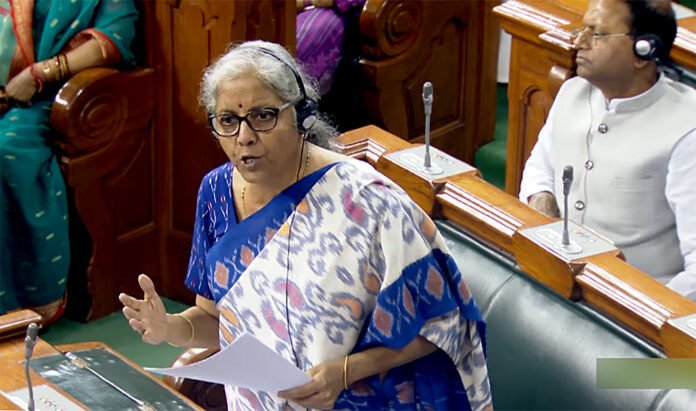
In a crucial step towards shaping India’s economic trajectory for the fiscal year ahead, Finance Minister Nirmala Sitharaman is scheduled to move the Finance Bill 2024 in the Lok Sabha today. This annual ritual marks a pivotal moment in the nation’s fiscal calendar, as policymakers unveil their plans to stimulate growth, foster investment, and address pressing economic challenges. As anticipation mounts, all eyes are on the Finance Minister as she prepares to present the government’s financial roadmap amid a complex and dynamic global landscape.
The Finance Bill, often described as the “mini-budget,” is a comprehensive piece of legislation that accompanies the annual Union Budget. It contains provisions related to taxation, fiscal policy, and other financial matters, serving as a vehicle for implementing the government’s economic agenda outlined in the budget speech. As such, it plays a crucial role in shaping the country’s economic policies and priorities for the upcoming financial year.
One of the key highlights expected in the Finance Bill 2024 is the government’s approach towards revenue generation and fiscal management. With the economy gradually recovering from the impact of the COVID-19 pandemic, there is a growing emphasis on bolstering tax revenues while ensuring fiscal sustainability. This may entail measures to streamline tax administration, enhance compliance, and broaden the tax base, while also providing relief to taxpayers, especially in light of rising inflationary pressures.
Additionally, the Finance Bill is likely to address critical issues such as infrastructure development, job creation, and social welfare initiatives. Investments in key sectors such as healthcare, education, and rural development are expected to feature prominently, reflecting the government’s commitment to inclusive growth and human capital development. Moreover, initiatives aimed at boosting entrepreneurship, innovation, and digital transformation are anticipated to receive significant attention, aligning with India’s aspirations to emerge as a global economic powerhouse in the digital age.
Another area of focus in the Finance Bill 2024 is likely to be the government’s efforts to stimulate investment and promote economic recovery. In the wake of the pandemic-induced slowdown, there is a pressing need to revitalize investment activity, both domestic and foreign, to reignite growth momentum. Measures aimed at improving the ease of doing business, facilitating access to finance, and fostering a conducive business environment are expected to be part of the government’s strategy to attract investments and spur economic revival.
Furthermore, the Finance Bill may contain provisions related to fiscal reforms and institutional strengthening to enhance the efficiency and effectiveness of public expenditure. This could include measures to rationalize subsidies, improve public procurement processes, and enhance budgetary transparency and accountability. Strengthening the institutional framework for fiscal governance is essential for ensuring prudent fiscal management and sustaining macroeconomic stability in the long run.
The presentation of the Finance Bill 2024 also provides an opportunity for the government to address emerging challenges and seize new opportunities in the global economic landscape. Geopolitical developments, technological disruptions, climate change, and shifting global trade dynamics are among the key factors shaping India’s economic outlook, and policymakers must navigate these complexities with foresight and agility.
Moreover, the Finance Bill is expected to reflect the government’s commitment to sustainable development and environmental conservation. With growing awareness about the need to address climate change and promote green growth, initiatives aimed at promoting renewable energy, reducing carbon emissions, and enhancing environmental sustainability are likely to be integrated into the budgetary framework.
As Finance Minister Nirmala Sitharaman presents the Finance Bill 2024 in the Lok Sabha today, it is evident that the stakes are high, and expectations are immense. The government’s ability to strike a balance between fiscal prudence and growth imperatives, while also addressing the diverse needs and aspirations of the population, will be closely scrutinized. Ultimately, the Finance Bill represents more than just a legislative document; it is a reflection of the government’s vision for India’s economic future and its commitment to building a prosperous and inclusive society.
